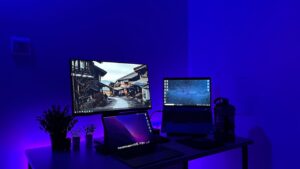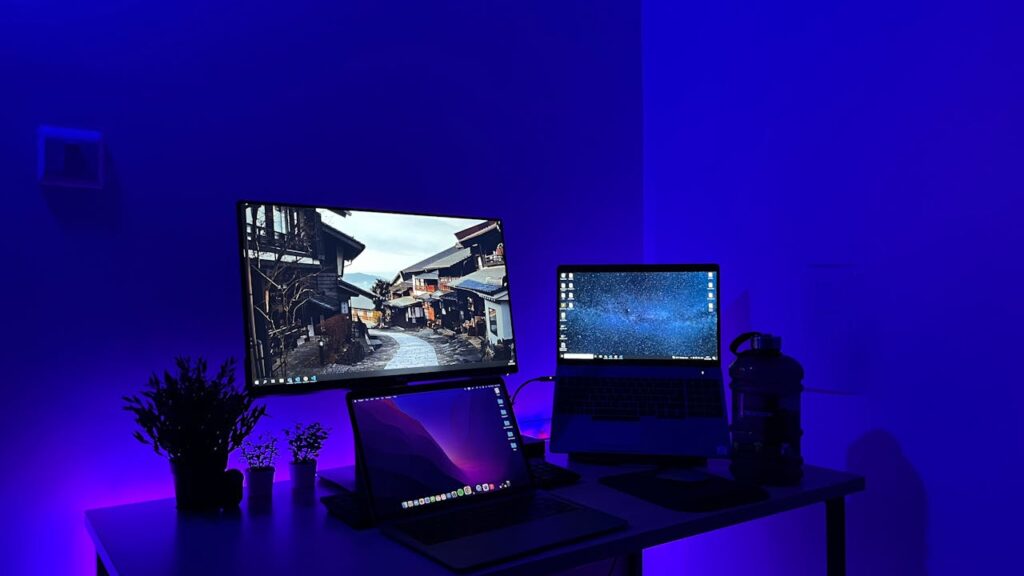Step-by-step instructions for choosing the best PC for remote work: A detailed guide
In the current computerized age, remote work has become a core job for some experts. Whether you are a consultant, a computerized expatriate, or part of an operative group, having the right PC can fundamentally impact your efficiency and work experience. Anyway, with so many options available, how do you choose the best PC for remote work? Here is a detailed manual to help you pursue an informed choice.
1. Identify your needs
Before jumping into the details, consider what you really want the PC to do. Is it true that you are only managing messages and reports, or do you need specific execution for video editing, programming advancement, or visual communication? Understanding your particular needs will help you narrow down your options.
Key Considerations:
- Type of work: Is it more an office-based assignment, or does it involve heavy programming applications?
- Portability: Do you really want a lightweight PC, or will it stay in one place?
Budget: Decide your budget limit and sort out options that are too expensive or too cheap.
2. Performance Specifications
For smooth remote work, your PC should have satisfactory performance determination. Here is what to look for:
- Processor (CPU): Choose a PC with a new-age Intel Center i5 or AMD Ryzen 5 processor. For more serious assignments, consider i7 or Ryzen 7.
- Memory (RAM): At least 8GB smash is recommended, although 16GB is great for different tasks and extra requesting applications.
- Storage: An SSD (strong state drive) of 256GB or more is ideal for faster boot times and quicker document access. For those who store large documents, consider 512GB or 1TB.
3. Battery Life
Remote work often means working from different locations, so long battery life is a must. Look for PCs that offer at least 8-10 hours of battery life to ensure you can manage a long day without frequent recharging.
4. Display Quality
A great display can reduce eye strain and further improve your overall work comprehension. Consider these aspects:
- Resolution: Full HD (1920×1080) is the base, but higher targets such as 4K may offer better clarity.
- Size: 13-15 inch screens are generally great for mobility and efficiency. Larger screens are better if you work with a variety of applications or need point-of-view design.
- Board Type: IPS boards offer better variety accuracy and more extensive review points than TN boards.
5. Keyboard and Touchpad
A comfortable keyboard and responsive touchpad are a must for long writing meetings. Find:
- Keyboard: A lighted keyboard can be helpful for working in low-light conditions. Make sure the keys have a good travel distance and material criticality.
- Touchpad: A large, accurate touchpad with multi-touch motion support enhances convenience.
6. Build Quality and Portability
Robustness is a must, especially if you often travel with your PC. Consider a PC that has:
- Build materials: Metal or high-quality plastic variants will generally be more robust than other less expensive options.
- Weight: Choose a gold-weight between 2-4 pounds for easy transport.
7. Connectivity
Having the right ports and network options is a must for remote work. Check for:
- USB ports: A USB-C port and a few USB-A ports are useful.
- HDMI or DisplayPort: For connecting to an external screen.
- Earphone jack: Essential for virtual meetings.
- Wi-Fi and Bluetooth: Make sure the PC complies with the latest Wi-Fi standards (Wi-Fi 6 is ideal) and has Bluetooth capability.
8. Security features
Remote work often involves sensitive information. Choose a PC that has:
- Built-in security: Features like fingerprint scanners or facial recognition add an extra layer of security.
- Trusted Stage Module (TPM): Helps secure your data and oversee encryption keys.
9. Operating System
Consider which operating system you are generally comfortable with:
- Windows: Adaptable with broad programming commonality.
- MacOS: Preferred for those working in creative fields or those who like Apple’s environment.
- Linux: Ideal for engineers or those who are inclined toward open-source situations.
10. Brand and Support
Finally, choose a legitimate brand known for reliable execution and great customer service. Brands like Dell, HP, Lenovo, Apple, and ASUS offer great options and support.










